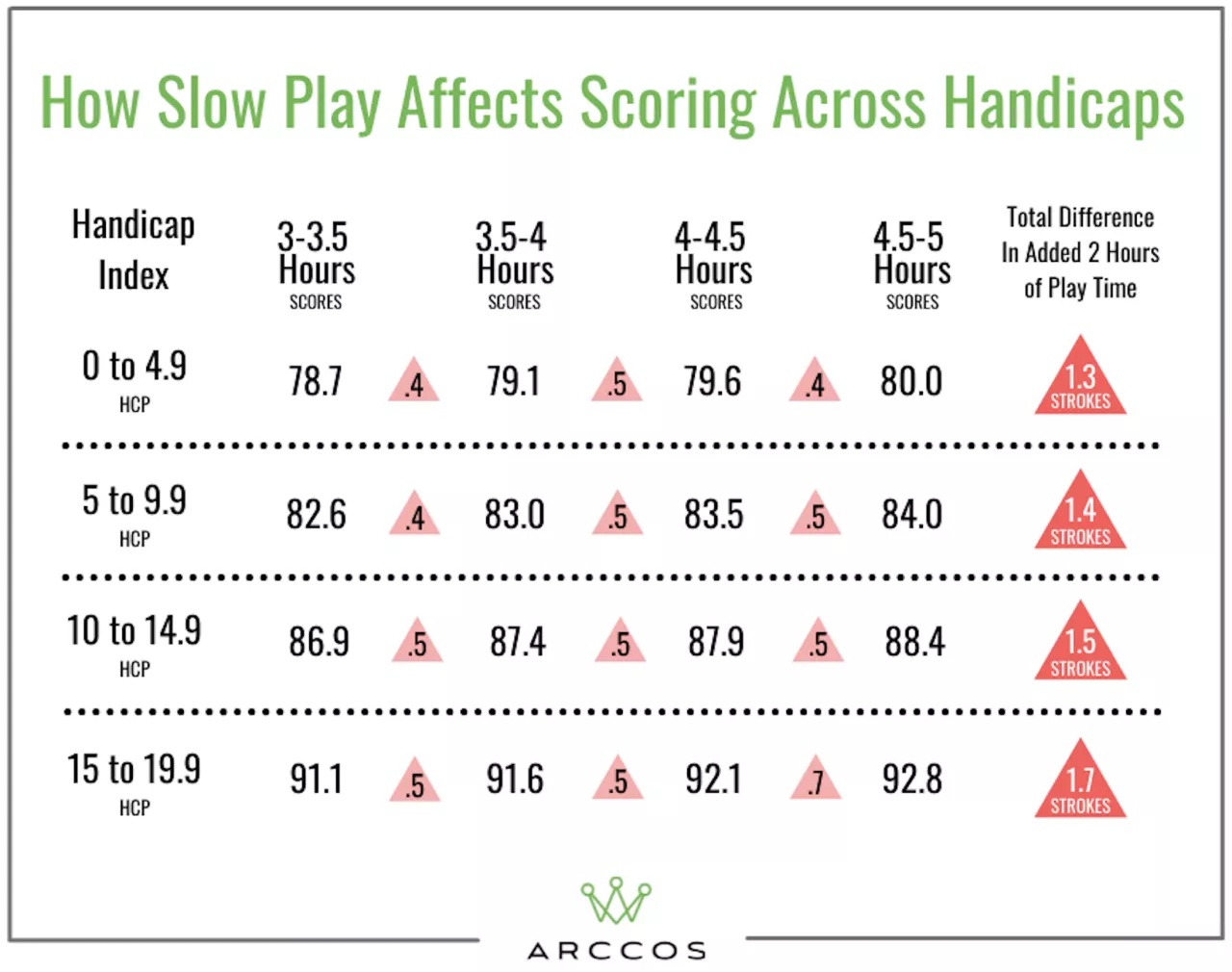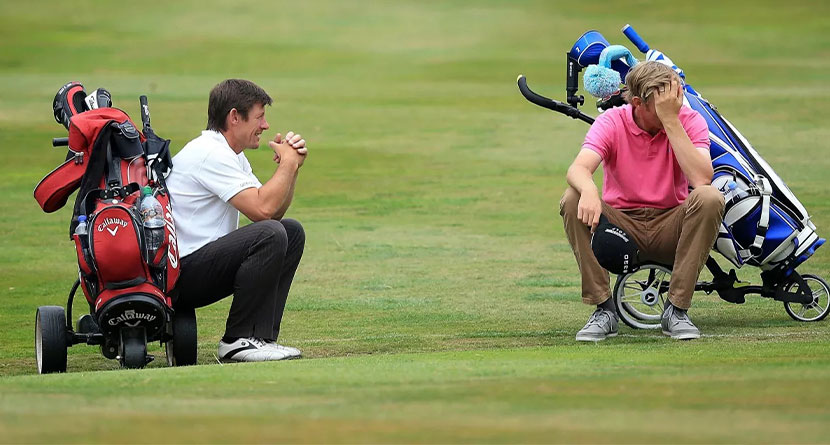If you tend to get riled up about slow play — apologies in advance — this is probably not what you want to hear: the longer a round takes, the higher scores are on average.
According to data compiled by Golf Monthly, all golfers from scratch to 20 are negatively impacted by slow play for rounds that last longer than three hours.
Taking into account data in half-hour increments up to five-hour rounds, golfers lose, on average, between 1.4 and 1.7 strokes per round, and nearly across the board, roughly half a shot per round for every extra 30-minute increment they are on the course.
No one is immune to this annoyance, but as you might expect, the higher the golfer’s handicap, the more strokes are lost as concentration wanes and frustrations set in, especially late in a round.
-
- 0-4.9 handicaps lose 0.43 strokes per half-hour increase; +1.3 strokes/5-hour round
- 5-9.9 handicaps lose 0.47 strokes/half-hour increase; +1.4 strokes/5-hour round
- 10-14.9 handicaps lose 0.5 strokes/half-hour increase; +1.5 strokes/5-hour round
- 15-20 handicaps lose 0.57 strokes/half-hour increase; +1.7 strokes/5-hour round

Golfers, for the most part, can understand how longer rounds can wear on one’s pysche — time spent looking for balls, waiting for groups ahead and general anxiety about the time spent on the course can lead to a less-engaged participant.
The inverse of this statistical finding is interesting to consider as well. Taking 1-2 shots off your handicap can be as simple as playing quicker, whether that be finding a better time of day to play (if possible) or sharing these findings with your golf friends (especially those who have a tendency to be deliberate).




